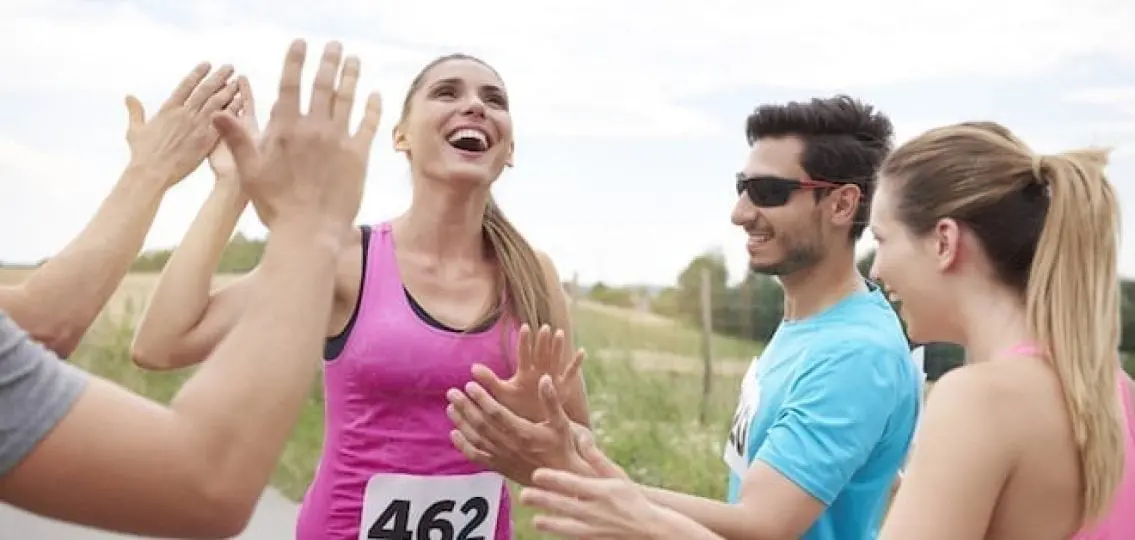As the director of athletics at Ryerson University, Ivan Joseph has had a lot of experience coaching teens and helping them build confidence, both on and off the field. At home, Joseph also gets to work with his own teens—ages 17, 16, and 13. We sat down with Joseph to learn about raising confident teens.

Q: What can parents do to help build self-esteem for teens?
Joseph: We need to be careful of how critical we are. Here’s a perfect example. My daughter leaves her towel on the floor. The one time I catch her putting it away, I say, “Hey, Claire. Thanks for hanging your towel up.” It’s still the same behavior that we’re trying to reinforce. It’s that whole principle of “catching them while they’re good.” Instead of just critically assessing mistakes. We try to enforce the positive.
Q: Do you have any tips for how to stay positive?
Joseph: Continue to praise the process versus the outcome. If my daughter Claire works on her project overnight and gets an A, she’s not going to get a lot of praise from me because that’s me praising the outcome. But if she spent time and really worked hard to create the A, then I’m praising that. If we praise the process instead of the outcome, then people are more willing to recognize that their self-confidence isn’t based on a score, an outcome, or a result.
Q: What advice would you give to teens in terms of how to master a skill?
Joseph: It’s repetition, repetition, repetition. You can’t wake up in the morning and decide that you’re going to be an astronaut or the fastest runner in your school. You have to practice. You have to be willing to put in the work and be persistent. The true key of the repetition is that you can’t give up at your first level of failure or first setback. When the failure comes, it’s the people who you surround yourself with. That’s why the you talk about how it takes a village to raise a child. Nobody can do it by themselves.
Q: How do you think the current setup of high school sports has changed over the years?
Joseph: The system is very different in that people are now becoming much more specialized in their sport. If I’m a parent and my son is sitting on the bench, I will move him to another team until he gets to play. What happens is that our children don’t develop this grit—which is something very closely related to self-confidence—to believe that you can accomplish a task. By continuing to move our kids, we’re not helping them grow. What happens is they get to university and it’s the first time they have to put the work in. They are not able to persist. They haven’t developed resilience because they haven’t had to work and learn about what it’s like to sit on a bench, what it’s like to lose, and what it’s like not to be the star.
Q: How are your own teens dealing with confidence?
Joseph: I’ve got a good partner. I’d say we’ve grown strong, confident young people; we’ve raised confident teens. I’ve got two girls, and they struggle with body image. They struggle with being accepted. They have the same things that all young ladies at that age are going through. I have a young son who has dyslexia. He struggles with how he’s being perceived by his peers. The risk of looking stupid and not being able to do the things that he wants to do. I don’t think my kids are any different than anybody else’s kids. On the surface, they’re very tough. But, I think that age is a tender age for all our young people.
Q: How can you make sure your confidence doesn’t rely on external praise and acceptance?
Joseph: We have to be careful there because if we allow our confidence to be external, then we give our power away. That’s the whole piece where the self-talk comes from. There’s going to be a lot of external people who will not believe in you. You’ve got to get away from the people who will tear you down.
A guy named Kyle tried out three or four times for our soccer team. I cut Kyle three times. One year, he shows up and he makes the team. Long story short, he becomes an all-Canadian Ontario University Athletics (OUA) captain. OUA is our athletic conference. If Kyle had believed me, he never would have had the confidence to keep coming back. His belief in himself is the real key to confidence.
That external piece—the applause, the compliments—all of that can help you. Just as importantly and even more damagingly, it can take you away from your path.
Q: If you hit a low point, how can you regain your confidence?
Joseph: Kids will lose their way because there are always new experiences and environments—from their high school to their university to their work environment.They will be shy and nervous and afraid, and that’s part of it.

Part of my job as the parent is to remind them of all the good things they’ve done. Remind them of the past, how they were able to meet new friends. Or remind them how they were able to win a race or do well on the test when they’ve done their work. I’m not here to blow smoke up their nostrils, or whatever you want to call it. My job is to remind them of their past successes, and to hopefully get them to talk and share those stories.





